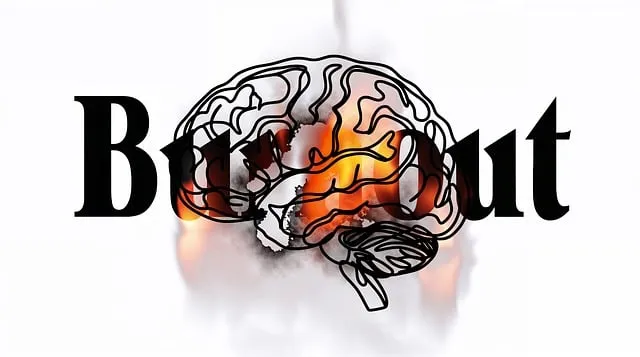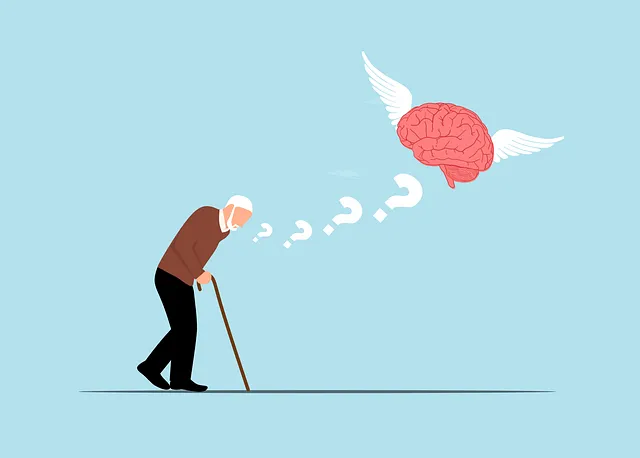The Kaiser Permanente mental health center in Arvada offers a range of evidence-based emotion regulation techniques, such as mindfulness, cognitive reframing, and relaxation methods, to enhance mental well-being. Their programs, including workshops and therapy, empower individuals to manage emotions, reduce stress, and improve relationships, ultimately fostering happier, more fulfilling lives. Through these holistic wellness solutions, the center has transformed many patients' lives, like Sarah, who found relief from intense emotions using these techniques.
Emotion regulation is a vital skill for maintaining mental well-being, enabling individuals to navigate life’s challenges with resilience. This comprehensive guide explores the importance of emotion regulation and delves into the innovative work being done at the Kaiser Permanente Mental Health Center Arvada, a leading provider of these essential techniques. We’ll uncover common strategies, provide practical tips for daily implementation, and share inspiring success stories that demonstrate the profound impact of learning to manage emotions effectively.
- Understanding Emotion Regulation: Why It Matters for Mental Well-being
- The Role of Kaiser Permanente Mental Health Center Arvada in Teaching These Techniques
- Common Emotion Regulation Techniques: A Comprehensive Overview
- Implementing These Techniques in Daily Life: Practical Tips and Strategies
- Success Stories: Real-Life Impact of Learning Emotion Regulation Techniques
Understanding Emotion Regulation: Why It Matters for Mental Well-being

Emotion regulation is a vital skill that plays a significant role in maintaining optimal mental well-being. It involves recognizing and managing our emotional responses effectively, ensuring they align with our goals and values. At the Kaiser Permanente mental health center Arvada, we recognize that understanding and practicing emotion regulation techniques can significantly enhance individuals’ ability to navigate life’s challenges.
By learning these skills, folks can reduce the intensity of negative emotions, prevent impulsive behaviors, and foster positive relationships. Social Skills Training, Self-Care Practices, and Positive Thinking are some of the key strategies often incorporated in emotion regulation programs. These tools empower individuals to develop resilience, improve their coping mechanisms, and ultimately lead happier, more fulfilling lives.
The Role of Kaiser Permanente Mental Health Center Arvada in Teaching These Techniques

The Kaiser Permanente Mental Health Center Arvada plays a pivotal role in teaching effective emotion regulation techniques to both mental health professionals and the broader community. With its strong focus on holistic wellness, the center offers specialized programs tailored to address various emotional and psychological needs. Through workshops, therapy sessions, and educational initiatives, it fosters an environment that encourages positive thinking and resilience.
This mental health hub is not just about treating conditions; it’s also dedicated to empowering individuals with skills for life. Their expert team, comprising therapists, counselors, and support staff, leverages evidence-based practices to teach strategies aimed at stress management, anxiety reduction, and emotional intelligence enhancement. Moreover, the center integrates aspects of risk management planning for mental health professionals, ensuring practitioners have the tools to advocate for effective mental health policy analysis and advocacy in their work.
Common Emotion Regulation Techniques: A Comprehensive Overview

At the Kaiser Permanente mental health center Arvada, various emotion regulation techniques are taught to help individuals manage and understand their emotions effectively. These techniques often form part of a comprehensive therapeutic approach designed to enhance emotional intelligence and resilience. One commonly employed method is mindfulness, which encourages individuals to focus on the present moment, observing their thoughts and feelings without judgment. This practice can significantly reduce reactivity to intense emotions and promote a sense of calm.
Another widely recognized strategy is cognitive reframing, where individuals learn to challenge and change negative thought patterns. By identifying distorted beliefs and replacing them with more balanced perspectives, people can alter their emotional responses. Additionally, techniques like deep breathing exercises, progressive muscle relaxation, and grounding activities help regulate the body’s physical reactions to stress and emotions. These practices are integral to the emotional healing processes offered at Trauma Support Services, fostering a sense of control and well-being among participants.
Implementing These Techniques in Daily Life: Practical Tips and Strategies

Implementing emotion regulation techniques in daily life is a powerful step towards enhancing mental well-being, and the Kaiser Permanente Mental Health Center Arvada offers valuable resources for this journey. These evidence-based strategies are designed to help individuals navigate their emotions effectively, fostering resilience and overall emotional healing processes.
Practical tips include integrating mindfulness exercises like deep breathing or meditation into daily routines, as these practices promote self-awareness and calmness. Additionally, keeping a journal to reflect on emotions and triggers can be therapeutic. The center’s Mental Health Education Programs Design emphasize the importance of self-care practices, encouraging individuals to set boundaries, prioritize rest, and engage in activities that bring joy. By incorporating these techniques into everyday life, one can effectively manage stress, improve mood regulation, and cultivate a healthier relationship with their emotions.
Success Stories: Real-Life Impact of Learning Emotion Regulation Techniques

Learning emotion regulation techniques has transformed lives—a fact highlighted by numerous success stories from individuals who once struggled with emotional well-being. At Kaiser Permanente mental health center in Arvada, Colorado, many patients have found solace and empowerment through evidence-based practices taught within their programs. These techniques empower people to navigate life’s challenges with more resilience, helping them manage stress, anxiety, and depression effectively.
One such story involves Sarah, who had always struggled with intense emotions that often left her feeling overwhelmed and isolated. Through a combination of mindfulness exercises, cognitive reframing, and compassion cultivation practices taught at the Kaiser Permanente center, she learned to recognize and modulate her emotional responses. This newfound skill significantly improved her quality of life, enabling her to engage more fully in activities she once found distressing and fostering deeper connections with loved ones. Sarah’s transformation is but one example among many, illustrating the profound real-life impact of learning emotion regulation techniques, especially when supported by dedicated mental health professionals.
Emotion regulation techniques, once mastered, become a powerful tool for enhancing mental well-being. As demonstrated by the success stories from the Kaiser Permanente Mental Health Center Arvada, learning these strategies can significantly improve quality of life. By understanding emotional triggers and adopting effective coping mechanisms, individuals can navigate life’s challenges with greater resilience. Integrating practical tips shared in this comprehensive guide, anyone can develop a robust emotion regulation toolkit tailored to their unique needs, thanks in part to the specialized teaching offered at Kaiser Permanente Mental Health Center Arvada.






